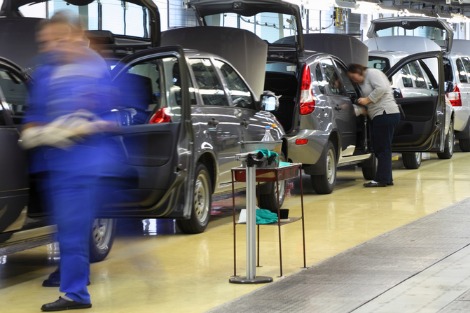
In both the United States and Australia, General Motors has been portrayed by cynical commentators as a government-sponsored employment agency and not a proper business. They miss the point that subsidised companies and their government patrons are investors in human capital, and that it's human capital — rather than money — that makes a society work.
Human capital is the combination of competencies and creativity that enable a person to perform a task that produces both personal fulfilment and economic value. The idea is that the subsidies will contribute to both the wellbeing of the workers and financial profits of the company in a manner that brings mutual benefit without exploitation on either side. In the case of car manufacturing around the world, the alternative is workers without jobs and companies without profits.
Pope Francis says that workers without jobs adds up to workers without dignity. 'Work means dignity, work means taking food home, work means loving!' A society where 'money is in command' inevitably lays waste its workers, and the young and old people who depend upon them. 'We must say: "We don't want this globalised economic system which does us so much harm!"'
A successful nation doesn't need a car industry, but it must have its working age citizens employed, or they and their families will suffer the depression and economic hardship that are characteristic of a society where money comes before love. If a government kills a car industry by withdrawing subsidies, it must have in place a secure plan that will ensure those who lose their jobs retain their dignity. The best way to do this is to make sure they have jobs to go to. The government is effectively an employment agency, with employment so fundamental to the wellbeing of the citizens that make up the nation.
Because a government must avoid taking its workers for granted, decisions that have consequences for employment are among the most serious it needs to take. The reporting of the current government's actions with regard to Holden suggest it may have been cavalier in the way it dealt with the parent company General Motors when so much human capital was at stake. Moreover it has no obvious plan for dealing with the total fallout for employment, including the likely flow on for Toyota workers.
The loss of jobs in the automotive industry has occurred against a background of rising unemployment, according to figures announced on Thursday. But the trend is even bleaker, with NSW treasurer Mike Baird gloomily predicting an extra 20,000 unemployed workers in the next financial year. He says 'this is not the time to be complacent'.
While it seems he might be playing the role of Scrooge at Christmas time, Baird has the right attitude and a lesson for his Federal Liberal colleagues. In the end, peace on earth and goodwill to all men and women will not be a reality for those out of work.
 Michael Mullins is editor of Eureka Street.
Michael Mullins is editor of Eureka Street.
Auto assembly line image by Shutterstock.